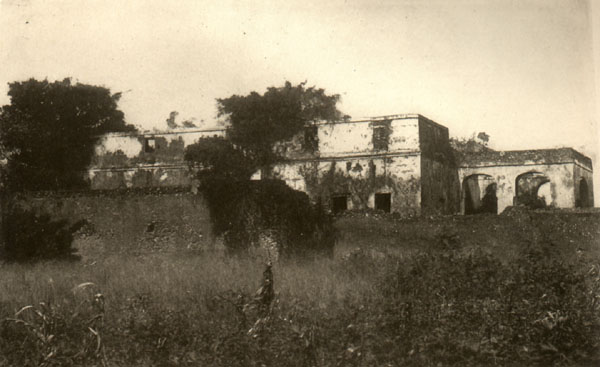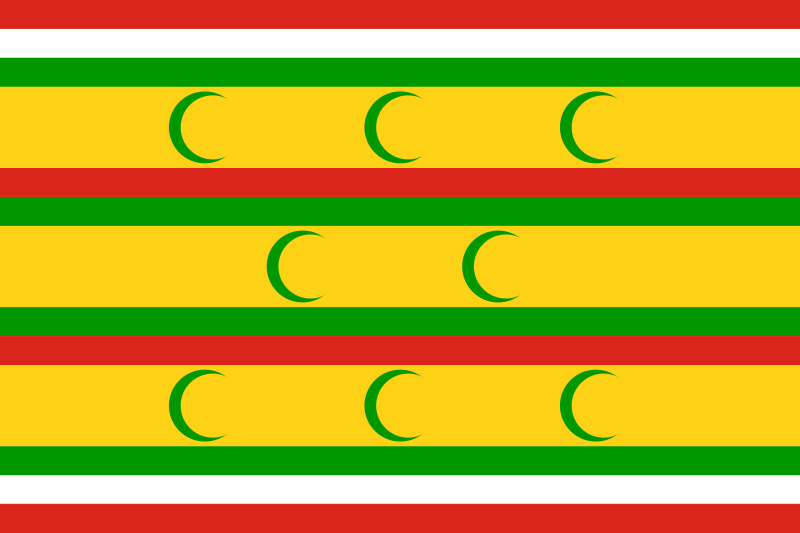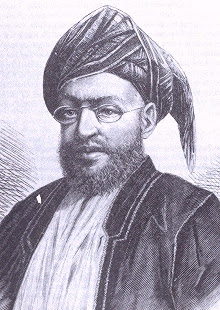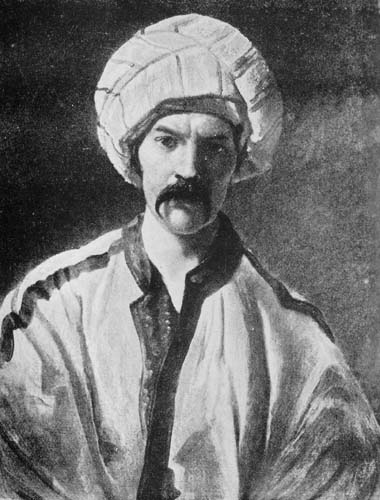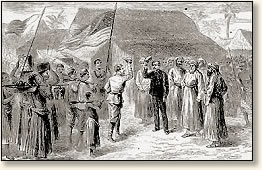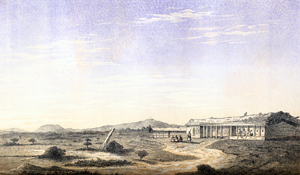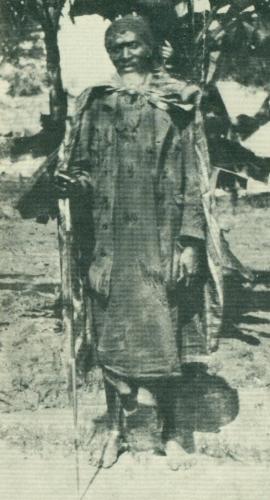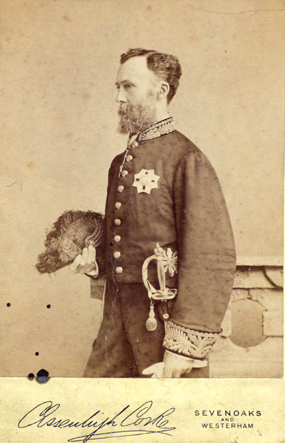rebeu
Banned

Abdulaziz I bin Mwenda Msiri
(born c. 1840 - 17 July 1910)
Khedive of the Garanganzes (1889 - 17 July 1910)
The succession of Abdulaziz, born Mwami Kalasa Mukanda-Bantu to the chieftaincy of the Garanganzes, established by his father the infamous warrior king M’Siri, is largely hailed as a turning-point in modern Zanzibari history. Son (although some claim adopted) of M’Siri, Mukanda Bantu grew to despise the favoured consort of his father, Maria de Fonseca, the daughter of a powerful Portuguese-Angolan trader ally of his father. Competition for the favour M’Siri between the two was not calmed by their nearness in age. In the mid-1850’s, Mukanda traveled to Zanzibar to advance his fortunes. The young inlander quickly became popular amongst theological and academic circles in the island’s madrassas and gained the eye of the Sultan’s brother, Sayyid Barghash bin Said. When the latter failed to usurp the throne in 1859, Mukanda was amongst his entourage exiled to Bombay for five years (included in the exiled party was the sayyid’s younger sister, Sayyida Salma, who acted as secretary for Barghash’s partisans during the insurrection. Abdulaziz and the sayyida would grow well-acquainted during the years in Bombay and later marry upon their the party’s return to Zanzibar.) While the Sayyid preoccupied himself with efforts to return to Zanzibar, Mukanda continued his theological and academic pursuits and became a practicing Muslim. This is often seen as the influence of Sayyida Salma. Although it is not when specifically he adopted the name Abdulaziz, from his return to Zanzibar with Sayyid Barghash in 1864 onwards he is known exclusively as Abdulaziz bin Mwenda Msiri, sometimes with addition of Alyayaki- the Garanganze. It is believed he adopted this name after the reigning Ottoman sultan and caliph of the time, the Sultan Abdulaziz.

Sayyid Barghash bin Said bin Al-Busaid, GCMG, GCTE (1837 - 26 March 1888)
Sultan of Zanzibar (7 October 1870 - 26 March 1888)
In addition to becoming familiar with the English language (more so Abdulaziz than Barghash) the years in Bombay further strengthened the young men’s opposition to the slavery of their homeland. The three and their supporters were allowed to return to Zanzibar in 1864, assured of their abolitionist and reformist tendencies. Sayyida Salma is credited with encouraging literacy and charity in the cause of abolition amongst the ladies of the Muscati Arab elite on the island, while Sayyid Barghash and Abdulaziz devised plans to develop the sultanate and its mainland dependencies, inspired from the prosper and success they saw of Muslim communities in the Raj. Meanwhile, Barghash and Abdulaziz continue their liaising and advocacy of the causes of abolition and modernization amongst Arab and inland notables on the island respectively.
In August of 1864, the future second bishop of the British Universities’ Mission to Central Africa (UMCA), Dr. Steere, landed at Zanzibar. The bishop, hearing of the talks of abolition amongst partisans of a failed coup on part of the Sultan’s brother, quickly becomes acquainted with Sayyid Barghash and Abdulaziz. The doctor decides to re-establish the headquarters of the UMCA in Zanzibar, and with support of the Arab and African residents of the island, sends his workers to the mainland from there. This is the first European mission in East Africa. The influence of the Mission and the Anglican Church, along with Sayyid Barghash’s séjour in Bombay would become a foundation of modern Anglo-Zanzibari relations.
In 1865, the traditional African great chieftain of the island (the Mwinyi Mkuu) Muhammad bin Ahmed bin Hassan el-Alawi, died and was succeeded by his son, Ahmed bin Muhammad bin Ahmed el-Alawi. Of the same generation of the Barghash and Abdulaziz, the new Mwinyi Mkuu was interested in the reform and modernization advocated by the sultanic heir and his inland African companion. In the spring of the same year, Sayyid Barghash, the Mwinyi Mkuu Ahmed bin Muhammad and Abdulaziz the son Msiri with the advice and involvement of the Anglican bishop Dr. Steere and Sayyida Salma signed a secret pact, now known as the Pact of Dunga, signed at the Mwinyi Mkuu’s palace, promising to use their respective dominions, influence and roles for the creation of a modern Zanzibar, first and foremost the abolition of slavery.
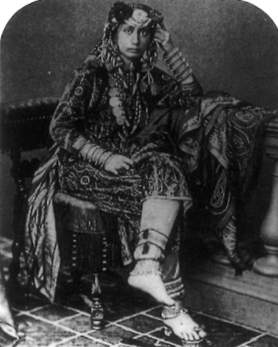
Sayyida Salma bint Said bin Sultan, Princess of Zanzibar and Oman
Sister of Sultan Majid bin Said bin Sultan (1856-1870) and Sultan Barghash I (1870-1888)
(1844 – 6 June 1924)
The pact recognized Abdulaziz as the heir of Msiri on the part of the Sayyid and accepted his proposal of marriage to Sayyida Salma in return for Abdulaziz’s allegiance to Sayyid Barghash as sultan. It also included provisions for continuing the cooperation of the offices of Sultan and Mwinyi Mkuu in advancing the peoples, currently divided between free and the enslaved, of the region. It also recognized the benefits of the Anglican mission and the three agreed to foster its development and accepted provisions for evangelization of non-Muslim slaves, envisioned to be freed during the future reign of Barghash.
In 1866, Sayyida Salma gave birth to a daughter who was named Basmah, presumed to be after the Valide Sultan of the Ottoman Empire, Pertevniyal Sultan. Given Abdulaziz’s adoption of an Ottoman name and his Turkish sympathies later in life, this is likely the case. That same year, David Livingstone arrived in Zanzibar to begin his quest searching for the source of the Nile until his death seven years later. The same year also saw the arrival of another influential European in Zanzibari history: Dr. John Kirk. Originally assigned as Surgeon-General at the British Consulate in Zanzibar, he quickly became Acting Consul soon afterwards. Through the offices of the UMCA’s Dr. Steere, he would become well acquainted with Sayyid Barghash, but particularly more so with Abdulaziz who was always by far the most anglophone of the elites on the island. Under the auspices of Sultan Barghash and with a healthy endowment provided not only by the Mission but as well as donations from the ladies of the Muscati Arab aristocracy, Dr. Steere opened the mission’s first school in the same year in 1866.
---
There are a few butterflies and handwaves that have made this plausible, primarily those being we assume an earliest possible birth of Msiri to allow "Abdulaziz" (OTL: Mwanda Bantu) to be born circa 1840, in order to coincide with the actually dates comings and goings we have with the sultanate in Zanzibar. His rivalry with his father's wife Luso-Angloan wife is historically accurate. Finally, as the first update is quite an intimate and local change in the social history of a few characters and elites on Zanzibar proper, we will assume the expansion of Msiri and Tippu Tip as well as European and explorations go as planned. It will be at the point of the introduction (or possibly not) of Germans that things will have to majorly diverge. I'm not sure yet whether or not to: 1) Handwave away the German colonial society up-start altogether; or 2) Have them present, but a more centralized Zanzibari empire in cohorts and close to Britain become a protectorate of the British Empire. Comments, suggestions, critiques, etc. of the TL so far and future ideas, especially re: the Germans are greatly welcome


